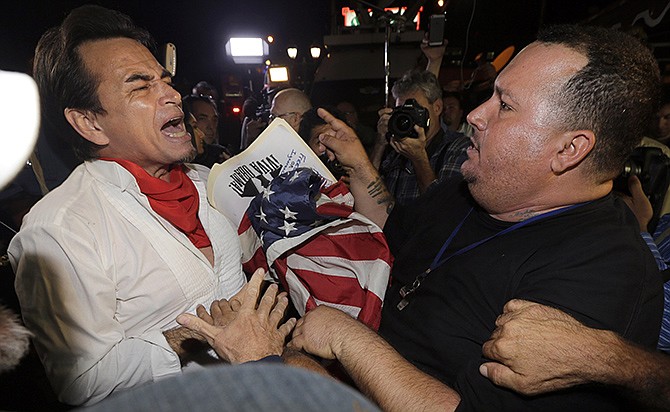MIAMI (AP) - When Cuban and American leaders announced they would restore diplomatic relations after a standoff lasting more than a half-century, all eyes in the U.S. immediately turned to Miami, where many expected the country's largest population of Cuban exiles to pour angrily into the streets.
Outrage was decidedly muted, however, with only a handful of demonstrations, while some of the expatriates known for their support of isolationist tactics actually expressed support for the changes.
The response to Wednesday's surprise announcement by U.S. President Barack Obama and Cuban President Raul Castro was a reflection of how much the Cuban-American community has changed since the Cold War days, when the U.S. began trying to freeze out the island's communist government.
Daniel Lafuente, the 27-year-old founder of tech hub LAB Miami, grew up hearing his mother and grandfather talk of their exile. He watched the Arab Spring uprisings with dismay, thinking the U.S. and Cuba were frozen stuck. He remains opposed to Raul Castro and his older brother, Fidel, but like other Cuban-Americans, he is willing after years of heartbreak and strained expectations to see new diplomacy and to let go of demands that the U.S. isolate Cuba.
"This is like a new age," Lafuente said.
Most of the 2 million Cubans living in the U.S. call Florida home, and Little Havana has long been the go-to place for demonstrations aimed at isolating the Castros. Cuban artists who tried to perform in Miami were threatened; those who dared perform in Cuba were shunned. But such efforts have faded, and the latest protests tend to draw the same small group of activists.
Younger generations and recent arrivals from Cuba tend to be more open to exchange and dialogue. Older exiles whose relatives were killed or imprisoned after the 1959 revolution are less likely to approve of a thaw.
But there are exceptions at all ages: Cuban-born Raul Hernandez, 60, has lived in Miami for 35 years and has two brothers in Cuba. Travel restrictions kept him from seeing his parents before they died.
"I think the embargo has not been good for the Cuban people because the government never changed," he said.
Then there's Ahmed Martel, 43, a Web designer who is too young to remember the revolution but lived under the Castro government until he left the island in 1992.
Martel says he is opposed to the plan to strengthen ties with Cuba.
"It doesn't make any sense to put Cuba on the same level as the United States," he said. "It doesn't make any sense to us to sit down with them and negotiate."
Ana Lourdes-Cuesta, 45, of Miami, said she couldn't believe Obama would consider shedding the "terrorist state" label for Cuba and normalizing relations.
"Now we're going to be friends and get dinner together, kissing babies and shaking hands? No. You can't erase history," she said, waving a Cuban flag.
Martel and Lourdes-Cuesta were among about a dozen people who showed up at a busy intersection in western Miami-Dade County on Wednesday afternoon.
In Little Havana, several dozen people attended hastily organized protests, including John Hernandez, holding a "Fire Obama" sign.
"We shouldn't do business with dictators. They're assassins," said Hernandez, whose mother, father and sister fled Cuba in the 1960s before he was born in the U.S.

